Third Iranian Tanker Delivering Fuel To Hezbollah Nears Suez Canal
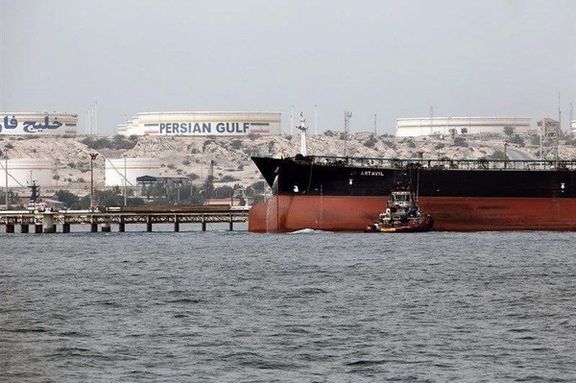
The third Iranian tanker carrying fuel for Hezbollah in Lebanon, has reappeared on a satellite tracking system in the Gulf of Suez, TankerTrackers has reported.

The third Iranian tanker carrying fuel for Hezbollah in Lebanon, has reappeared on a satellite tracking system in the Gulf of Suez, TankerTrackers has reported.
The tanker Fortune has been identified through the Automatic Identification System (AIS) that uses transceivers on ships and is used by vessel traffic services. TankerTruckers.com tweeted the news on Friday.
The Lebanese Hezbollah announced in August that Iran will be sending diesel and gasoil to energy-starved Lebanon, in a challenge to the United States that has sanctioned both Iran and Hezbollah.
The first tanker anchored at the Syrian port of Baniyas and some of its fuel has already been shipped to Lebanon by tanker trucks.
While Hezbollah insists that the some of the fuel will be distributed among hospitals and other public services, the rest will be sold. This would generate money for the Shiite militant organization, which has always depended on Iran for financial support.
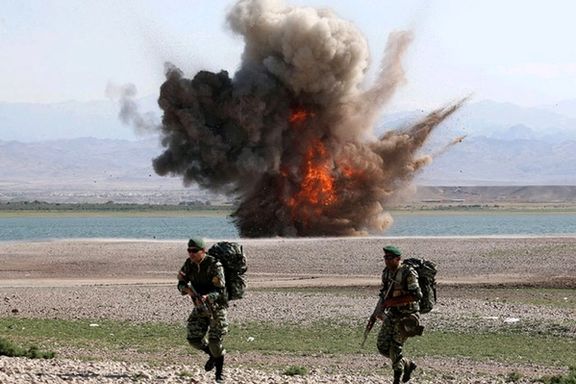
Iran-Azerbaijan tension grew Friday as Iranian officials continued to criticize Baku’s links with Israel as the Iran military conducted exercises near the Azeri border.
In an interview on the side-lines of the maneuvers, Brigadier-General Kiumars Heidari said Iran would not tolerate any change in Armenia’s borders. Some weeks ago Azerbaijan arrested Iranian truck drivers using a land corridor that emerged from the Azerbaijan-Armenia war of 2020 when Azerbaijan acquired Nagorno-Karabakh.
Tehran was also alarmed at Azerbaijan’s military drills with Turkey and Pakistan beginning September 12 in Baku, about 250km from the Iranian border.
Abdollah Ganji, managing director of Javan newspaper, which is affiliated to the Revolutionary Guards (IRGC), in a tweet Friday alluded to Azerbaijan being historically Iranian territory. He said Iran had "showed respect and recognized the rulers of Azerbaijan" but warned that they should not use "borrowed power to threaten" Iran.
People living on the two sides of the Aras River, which separates Iran and Azerbaijan, "have had Iranian identity for several thousand years," Ganji continued. The territory was acquired by the Russian empire from the Qajar dynasty after the Russo-Persian War of 1826-28, dividing Azeri speakers between northwest Iran and the Russian empire.
Iran is particularly concerned at Azerbaijan in recent years moving closer to Israel, which is a major oil customer and reportedly allowed to use Azerbaijan’s airbases.
Attending the Iranian military exercises, Mohammad-Ali Ale-Hashem, Supreme Leader Ali Khamenei's representative to the northwestern province of Ardabil, accused Israel of "seeking to create disruption and tension in good relations between Muslim countries."
Interior Minister Ahmad Vahidi said Thursday evening during a visit to the northwestern province of Ardabil that Israel and the "enemies of the friendship between Iran and Azerbaijan" had been trying to sabotage their relations.
Iran's ambassador to Azerbaijan, Seyed-Abbas Mousavi, took to Twitter Friday to respond to the Israeli ambassador's tweet claiming that unlike Iran, Israel, the United States and Azerbaijan invested in "diversity and tolerance."
"We have special respect for all Jews, Christians and other followers of the divine religions, " Mousavi tweeted. “But we are sure that the Republic of Azerbaijan and Palestine will remain Islamic countries forever. The dreams of Zionism for this region will never be interpreted.”
In an interview with Anadolou, a Turkish state news agency, published Monday, the first anniversary of the 2020 war, the president of Azerbaijan, Ilham Aliyev, said he was "very surprised" that Iran was holding military exercises in a border region and questioned whether they were linked to Azerbaijan acquisition of territory from Armenia.
Many border issues between Azerbaijan and Armenia remain unresolved, and there have been intermittent clashes since May.

Mike Pompeo has said Friday that the Taliban took the Trump Administration seriously after the killing of Iran's Qassem Soleimani in 2020.
Former US Secretary of State Mike Pompeo tweeted: "The Taliban knew our government was very serious because they saw our attack on Qassem Soleimani and the elimination of ISIS. "They knew that if they acted in a way that was inconsistent with American interests, we would destroy them."
President Joe Biden has been criticized for the hasty withdrawal from Afghanistan that led to a quick takeover by the Taliban. The Biden administrations says that the decision to withdraw and an agreement with the Taliban was reached by the Trump administration.
Soleimani was killed in a US drone strike in Baghdad on January 3, 2020, ordered by former president Donald Trump, to eliminate impending terror threats, the US said at the time.
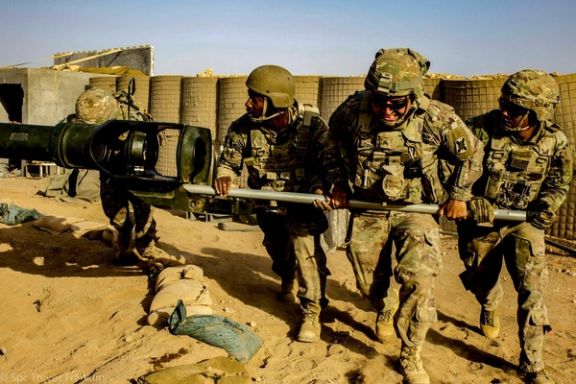
A recent pledge by US president Joe Biden that the US would not abandon Kurdish allies in Syria has gone a long way to allay their fears, according to Reuters.
In meetings held in August and September between US officials and the Kurdish-led Syrian Democratic Forces (SDF), Biden’s pledge was conveyed to the Kurds who have played a pivotal role in the fight against the Islamic State group. They are supported by around 2,000 US troops stationed in Syria.
The US military presence in Syria is also needed to curb Iran’s influence in both Iraq and Syria and address the security concerns many US allies – particularly Israel – in the region feel as a result.
The hasty and badly organized US withdrawal from Afghanistan in August prompted fears among Washington’s other allies about the durability of US friendship. Kurdish troops in northeastern Syria, facing multi-pronged opposition from Islamic State fighters as well as the Assad regime and the prospect of Turkish incursion, have felt particularly vulnerable.
The election of Joe Biden in November 2020 raised the hopes that the US would adopt a steadier approach in its dealings with the Kurds in Syria. And it seems that, on appearances at least, the US is willing to do so.
Reporting by Reuters
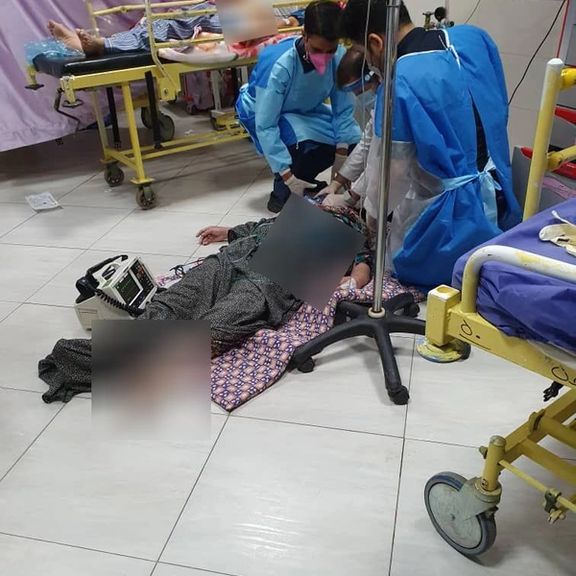
Iran’s Supreme Leader Ali Khamenei’s personal physician Alireza Marandi has told the health minister criticizing plans to hold a “vaccine victory” celebration.
Marandi, who is also Khamenei's medical advisor, in a letter to the health minister has warned that such a mentality "oversimplifies" the Covid-19 pandemic.
Iran’s Supreme Leader Ali Khamenei’s personal physician and medical advisor Alireza Marandi has written to the health minister criticizing plans to hold a “vaccine victory” celebration, saying such a move is oversimplifying the health crisis.
Health Minister Bahram Einollahi said earlier this week that the country would hold celebrations to mark “vaccine victory”. Iran started Covid-19 vaccination late and stayed behind many other regional countries such as Turkey, the United Arab Emirates and Saudi Arabia.
As a severe new wave of infections and deaths hit the country in July and August, imports of Chinese vaccines picked up speed and more than 55 million doses have been administered among Iran’s 85-million population.
However, the main reason for the slow start to vaccination was Khamenei’s ban in January to import American and British vaccines, largely on political grounds and based on conspiracy theories. The leader’s personal doctor was among those who early on backed the vaccine ban.
Marandi has told the health minister that premature celebrations can lead to loss of trust among the populace regarding government decisions and actions.
Iran has so far fully vaccinated around 30 percent of its population, although political leaders try to claim that close to 70 percent are vaccinated, by counting those who have received only the first dose.
More than 120,000 Iranians have died according to official government figures that are hotly contested by medical experts and some politicians in the country. There have been estimates that the real figure might be 2-3 times higher that what the health ministry says.
Marandi in his letter has warned the health minister not to make optimistic promises of freedom to travel once vaccination reaches 70 percent. He said such moves could lead to new pandemic surges, taking more lives.
The change in tone of Khamenei’s personal doctor could signal the possibility that Supreme Leader learned a lesson from underestimating the pandemic earlier on and besides his vaccine ban, allowing crowded religious ceremonies to take place.
Another major mistake by Khamenei’s office was to promise the development of homegrown vaccines, despite warnings that this would be a very ambitious undertaking.
According to some claims, the government gave hundreds of millions of dollars to powerful regime insiders to develop half a dozen Covid vaccines, and so all these efforts have essentially failed. This has led to public criticism and even ridicule, a fact implicitly reflected in Marandi’s letter.
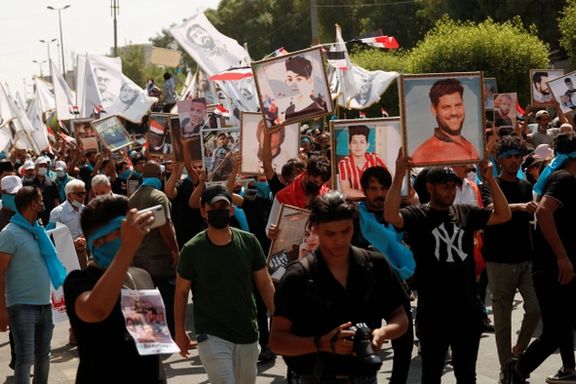
Iraqis marched in Baghdad Friday to mark two years since mass anti-government protests erupted in the Iraqi capital and southern provinces calling for reform.
Around 1,000 protesters took part in the event in the center of Baghdad, many of them carrying photos of loved ones who were killed by security forces during the protests.
The commemoration comes a week before Iraq plans to hold early elections, which had been a key demand of tens of thousands of protesters who thronged streets and public squares in October 2019 until early 2020.
Demonstrators camped out in the capital's Tahrir Square for months, most of them Iraqi youth decrying endemic corruption, poor services and unemployment.
The movement petered out owing to the government's heavy-handed response and the coronavirus pandemic.
Over 600 people died as security forces used live ammunition and tear gas canisters to disperse crowds.
Now, many among the protest movement are calling for a boycott of the elections scheduled for October 10, convinced that nothing will change.
They decry in particular a string of targeted assassinations against civil society groups and outspoken activists for which no one has been held accountable.
The killings have created a climate of fear and widespread reluctance to take part in the voting, particularly among young Iraqis who constitute the largest group of voters in Iraq.
Reporting by AP